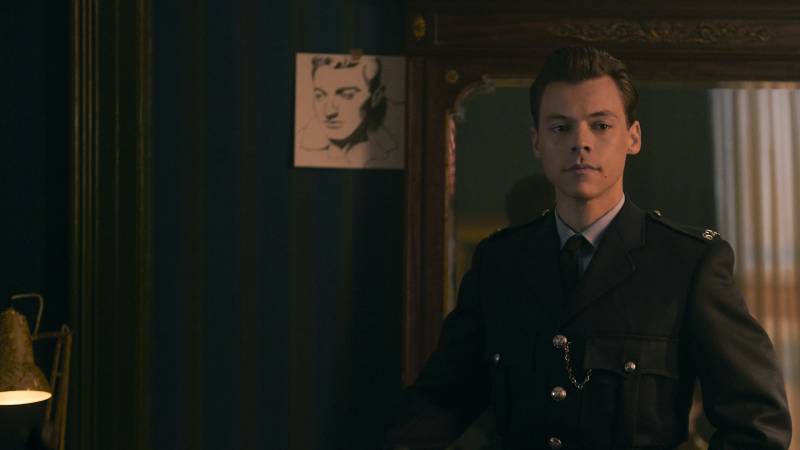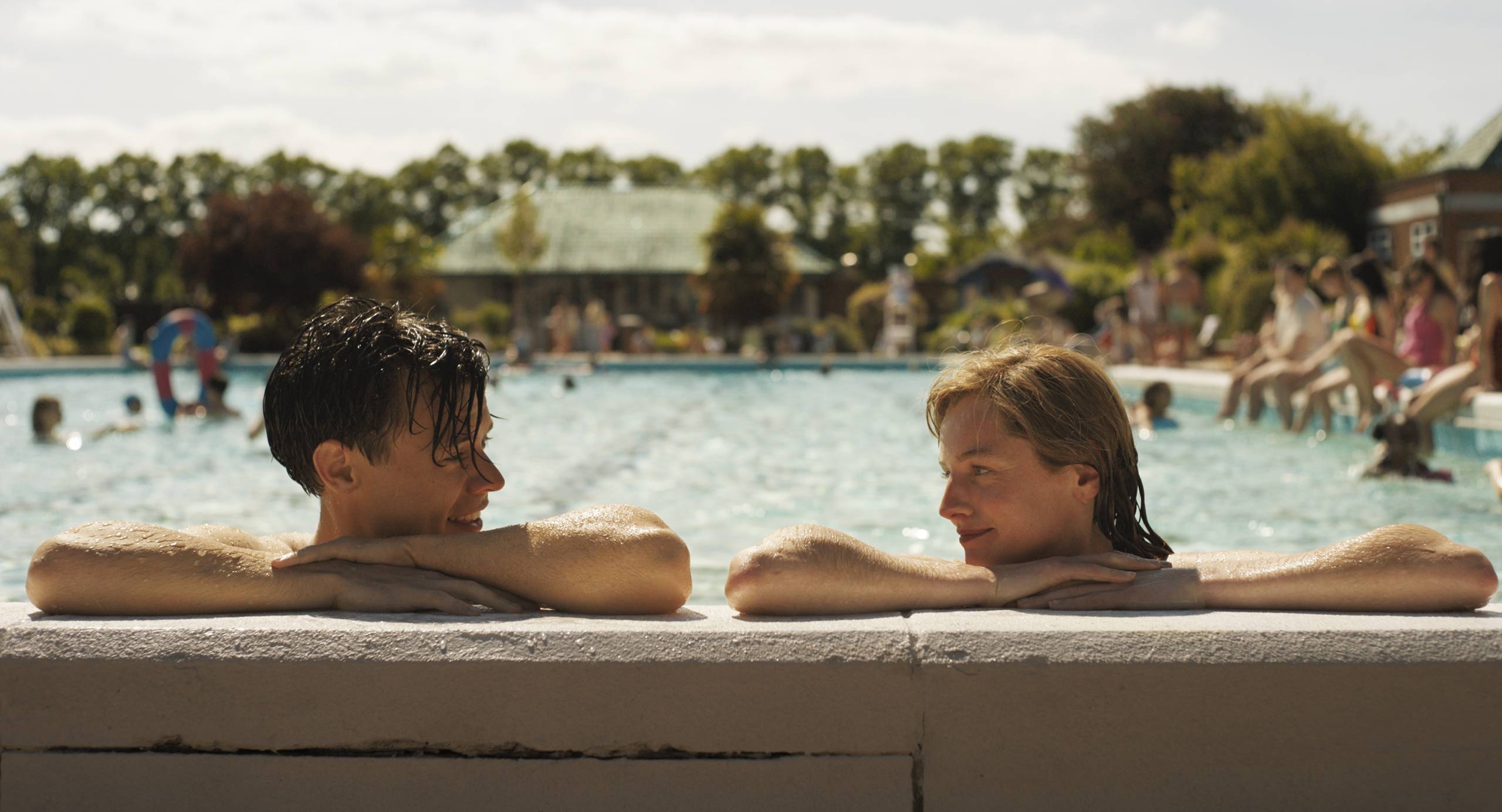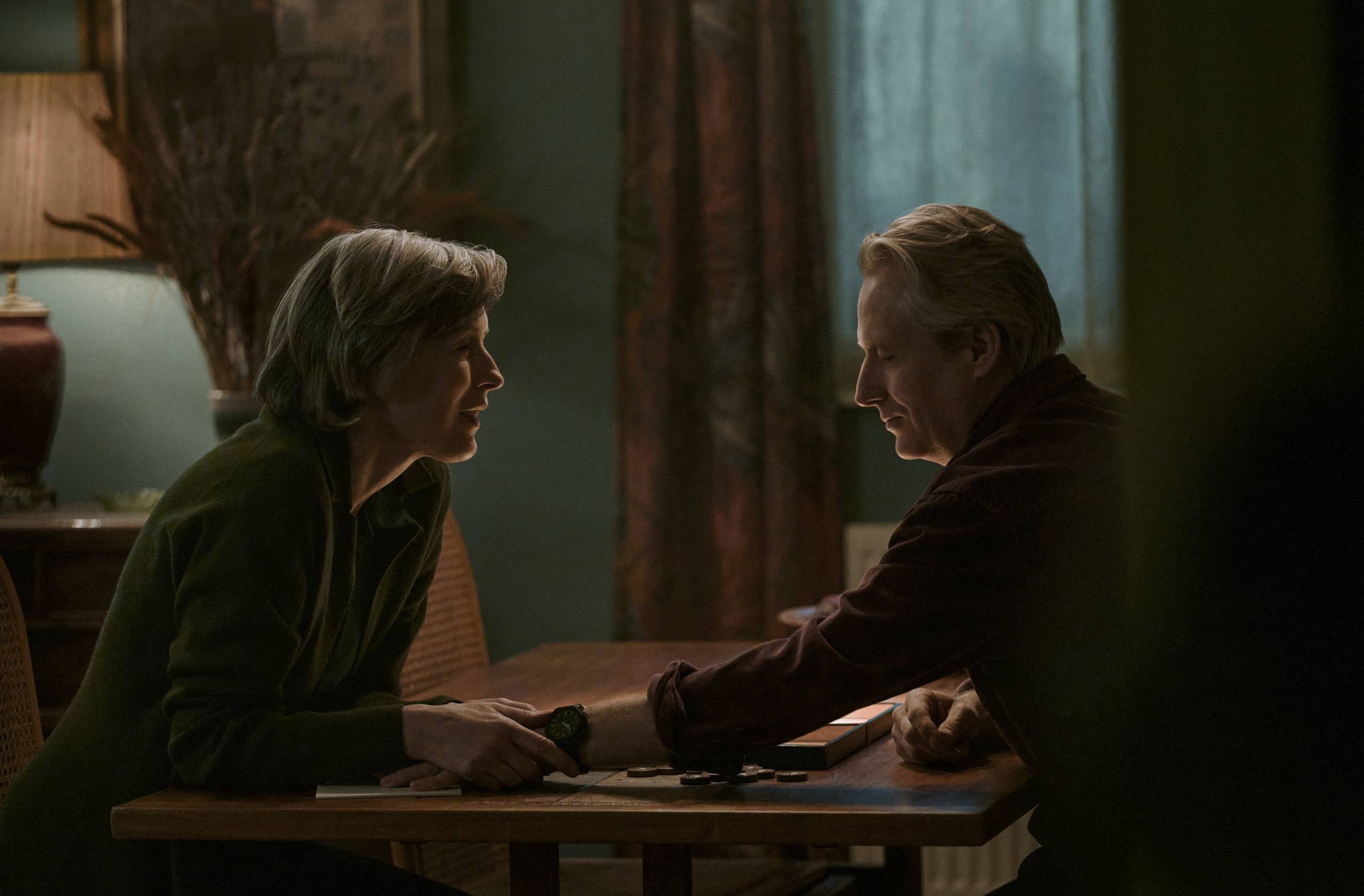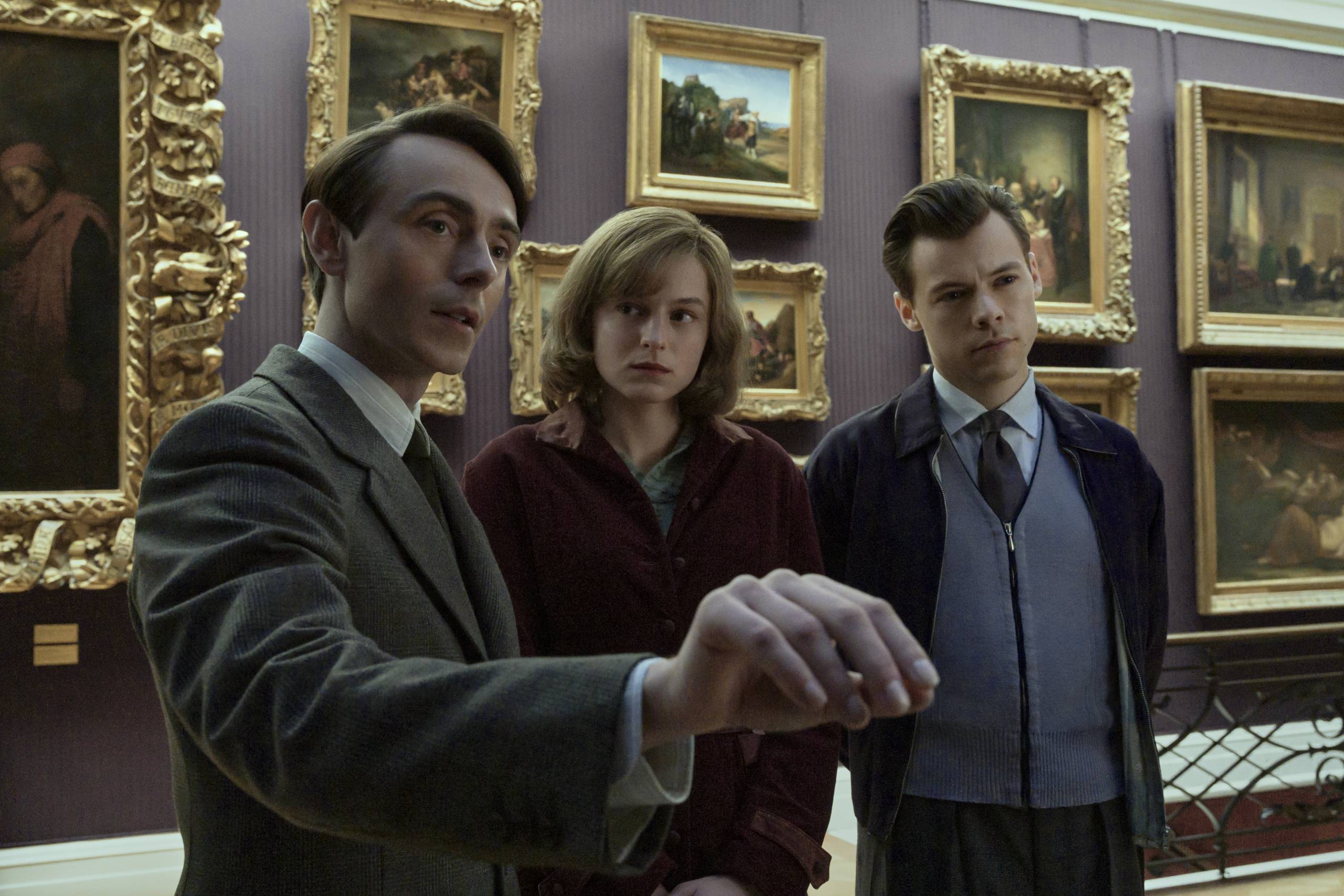Coastal England is a melancholy place in My Policeman. From indigo light filters that darken the ocean waves to an overwrought musical score frothing above them, director Michael Grandage assembled every aspect of his movie in a minor key. This bifurcated film is divided into an energetic past that slowly takes a mournful turn towards an enervated, much sulkier present.
Harry Styles Gives an Arresting Performance in Steamy Yet Gloomy ‘My Policeman’

The story begins in the sun-dappled 1950s when the seaside is chock-full of skimpy swimsuits and consequential flirtations. By the time we arrive in the 21st century, the three young leads, including pop star and Hollywood neophyte Harry Styles, are replaced by a trio of older actors. Each one of them is repeatedly shown in isolation, often staring out to a turbulent sea. The autumnal mood of middle-age regret has dissolved all of those good, good summer vibrations.
Grandage and his editor Chris Dickens overcomplicate the melodrama with awkwardly placed transitions between past and present. Even the flashbacks aren’t told in chronological order. When Tom (Styles) is introduced to Marion (Emma Corrin) through mutual friends, they connect and begin a mutually tentative romance that leads to marriage. But the audience later learns that Tom’s already been involved in a passionate — and I mean lusty — affair with Patrick (David Dawson).

My Policeman had the potential to become a small but devastating tragedy comparable to 2017’s On Chesil Beach, another British seaside love affair gone wrong. But Grandage gives up on grandeur to divert our attention to the future of gloom. It’s problematic that the older cast of accomplished character actors doesn’t resemble their younger counterparts. It took me the better part of half an hour to realize that actor Linus Roache was meant to be an older version of Styles — not the more famous Rupert Everett.
The script also does a disservice to the characters’ complex relationships. Future Marion is played by Gina McKee (of Notting Hill), who’s given pages and pages of monologues expressing a lifetime of marital disappointment. She’s full of recriminations, trying to liberate Tom and unburden herself, to atone for a fatally misguided decision her younger self made.
When Roache is on screen he’s short-tempered and brusque with Marion. Or he’s out taking cliffside walks above a crashing gray ocean. But it’s Everett’s role that’s thankless. As the older Patrick, he’s unable to walk or care for himself, to articulate fully-formed thoughts or coherent sentences. My Policeman concludes with a strange imbalance: the two men at the center of a love story can’t carry on a conversation with each other.

The younger cast has better material to work with. Although Styles has attracted most, if not all of the publicity for the film, My Policeman wouldn’t work without Dawson and Corrin’s careful performances. After playing Princess Diana in The Crown, Corrin knows exactly what to withhold and what to display when portraying a frustrated, morally conflicted character. Marion is painfully aware of Tom’s confusion but, at her own peril, chooses to ignore it.
Dawson and Styles, meanwhich, have credible chemistry, and their sex scenes are filmed with a surprising amount of intensity. Choreographed to show off their bodies, these moments also capture their colliding souls. Dawson never lets the audience forget Patrick’s emotional investment in Tom, even as Styles’ character responds to and resists Patrick’s desire for him.
Styles may or may not be queerbaiting his music fans in real life, but in this film he embodies the role of a closeted gay man at a time when and in a place where being gay was a punishable offense. Tom’s ambivalence is a self-defense mechanism that makes sense, and especially so in the context of his professional life as a policeman.

If the film told its 1950s story without traveling back and forth in time, My Policeman would resonate in the sorrowful way of Brokeback Mountain. Instead, it becomes a sentimental drama. But sentimental dramas that set out to excavate homophobic 20th century laws, however imperfect they may be, often succeed as both tearjerkers and history lessons. Saturday Night Live mocked recent movies like Portrait of a Lady on Fire and Ammonite, but films like these remind audiences that queer folk have had to be cautious about their private lives. Risking physical violence, imprisonment or life as an outcast, they always had to hide matters of the heart.

‘My Policeman’ opens in Bay Area theaters on Friday, Oct. 21. Details here.

